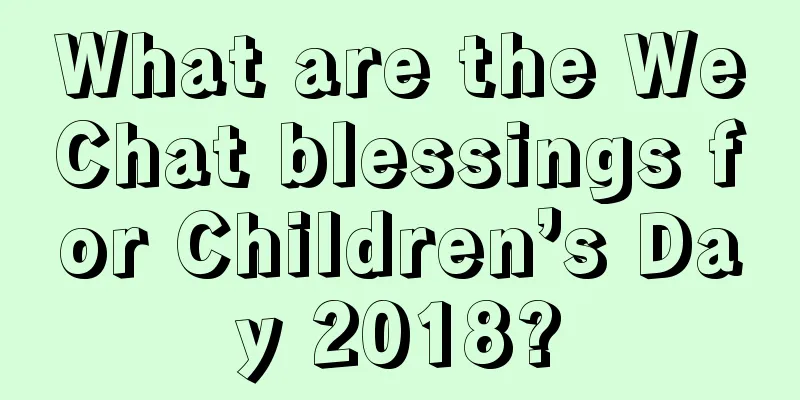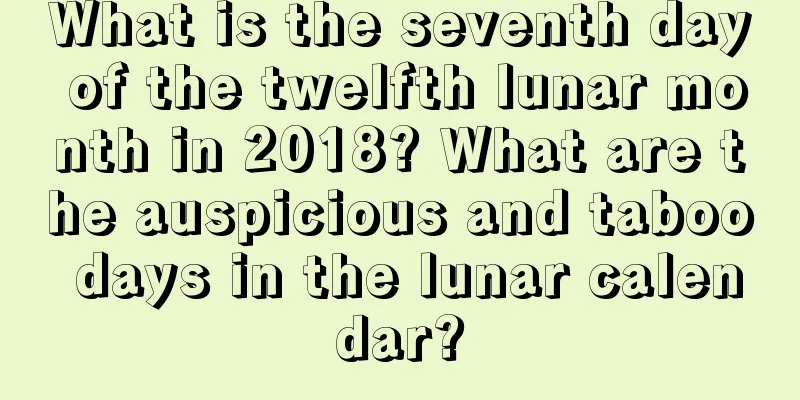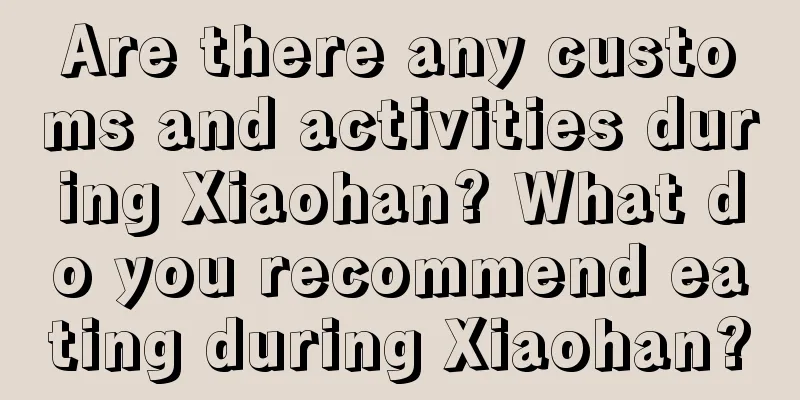What is the origin of the Lantern Festival? What traditional Lantern Festival delicacies are there?

Our country has quite a lot of traditional festivals, most of which have their own stories, customs and food. What is the origin of the grand Lantern Festival every year? What are the special foods? If you want to know more about the first month of the lunar calendar in 2018, please pay attention to our fortune teller website!What is the origin of the Lantern Festival?The fifteenth day of the first lunar month is the Lantern Festival. Also known as the Lantern Festival, Yuan Ye, and Lantern Festival. According to legend, Emperor Wen of the Han Dynasty (179-157 BC) would go out of the palace to enjoy himself with the people on the fifteenth night of the first lunar month to celebrate the fact that Zhou Bo put down the Rebellion of the Lü clan. In ancient times, two nights were called "yuan" and the first month was also called "yuan". Therefore, Emperor Wen of the Han Dynasty designated the fifteenth day of the first lunar month as the Lantern Festival, and this night was called Yuanxiao. Sima Qian created the Taichu Calendar and listed the Lantern Festival as a major festival. It flourished during the Sui, Tang and Song dynasties. "Book of Sui·Music" states: "Every first month, all nations came to pay tribute, and they would stay until the 15th day in a theater outside Duanmen and inside Jianguomen, which stretched for eight miles, with plays set up as the theater stage." There were tens of thousands of people participating in the singing and dancing, from dusk to dawn, and ending at the end of the day. With the changes of society and times, the customs and habits of the Lantern Festival have undergone great changes, but it is still a traditional Chinese folk festival.The Lantern Festival is a traditional Chinese festival that dates back to the Western Han Dynasty more than 2,000 years ago. According to historical records and folk legends, the fifteenth day of the first lunar month was already taken seriously in the Western Han Dynasty. The activity of Emperor Wu of Han offering sacrifices to "Taiyi" (Taiyi: the god who dominates everything in the universe) in Ganquan Palace on the first night of the first lunar month was regarded by later generations as a precursor to the worship of gods in heaven on the fifteenth day of the first lunar month. Yuanxiao originally meant "the night of the Lantern Festival". Because the main activity of the Lantern Festival on the fifteenth day of the first lunar month is eating glutinous rice balls and admiring the moon at night, the name of the festival later evolved into "Lantern Festival". On the night of the Lantern Festival, the streets and alleys are decorated with lights, people admire the lanterns, guess lantern riddles, and eat Lantern Festival rice dumplings, bringing the celebrations that began on New Year's Eve to another climax and becoming a custom passed down from generation to generation. When the Lantern Festival was in its early stages of being a festival, it was only called the fifteenth day of the first lunar month, the middle of the first lunar month, or the full moon. After the Sui Dynasty, it was called Yuan Xi or Yuan Ye. Influenced by Taoism in the early Tang Dynasty, it was also called Shangyuan, and it was occasionally called Yuanxiao in the late Tang Dynasty. But since the Song Dynasty, it has also been called Dengxi. In the Qing Dynasty, it was called the Lantern Festival. Traditional food for the Lantern Festival1. Tangyuan and Yuanxiao During the Lantern Festival, people in the south eat Tangyuan and people in the north eat Yuanxiao, both for the beautiful meaning of seeking family reunion. The main raw material for making Tangyuan and Yuanxiao is glutinous rice, which is mild in nature, sweet in taste, and can replenish deficiency and regulate blood, strengthen the spleen and appetite, invigorate qi and stop diarrhea. It has the functions of warming the middle, promoting body fluid and moisturizing dryness. The fillings of glutinous rice balls can be sweet, salty, meat or vegetarian, while the fillings of Yuanxiao are mostly sweet, usually made of fruit and dried fruits.2. Yuanxiao Tea In Shaanxi and other places, there is a custom of eating Yuanxiao tea, which is to put various vegetables and fruits into the hot soup noodles, which is very similar to the ancient "Yuanxiao porridge". This tea increases the intake of fiber, minerals and vitamins, and is not as greasy as ordinary Yuanxiao. It can neutralize the acidic constitution caused by eating more animal foods during the festival, and also makes the Yuanxiao more nutritionally comprehensive. 3. Zaozong: People in Taizhou eat Zaozong after watching the lanterns on the 14th day of the first lunar month every year. The rice soup is made by stir-frying shredded pork, shredded winter bamboo shoots, shiitake mushrooms, black fungus, fresh dragonfly, dried tofu, fried dough sticks, Sichuan bean curd, spinach, etc., then adding a little rice flour and cooking it into a salty paste. The fermented rice soup drunk on the fifteenth day of the first lunar month is sweet, made with sweet potato starch or lotus root starch, lotus seeds, sweet dates, longans, etc. 4. Oil tea: Food for the Lantern Festival night, in plain areas it is called “flat dumplings on the 15th, and round dumplings on the 16th”, people eat dumplings one day and Lantern Festival on the next; in mountainous areas it is “oil tea on the 15th, and flat dumplings on the 16th”. This is exactly what is meant by “customs vary every ten miles”. Making tea means stirring the tea with chopsticks and putting it into the pot to make oil tea, also known as noodle tea. Oil hammer 5. Youchui is a traditional food for the Lantern Festival. It was rice or bean porridge topped with gravy during the Northern and Southern Dynasties. But this food is mainly used for sacrificial offerings and cannot be considered a festival food. It was not until the Tang Dynasty that Zheng Wangzhi's "Records of the Chef" recorded: "People in Bianzhou celebrate the Lantern Festival with oil hammers." The method of making oil hammers, according to a record of "Shangshi Ling" in "Lu's Miscellaneous Stories" quoted in "Taiping Guangji", is similar to the later fried Yuanxiao. Some people also call it the "Pearl of Oil Painting". dumpling 6. Dumplings The fifteenth day of the first lunar month is here. People in the north have the habit of eating dumplings. People in Henan have the Lantern Festival custom and tradition of "flat dumplings on the fifteenth day and round dumplings on the sixteenth day", so dumplings should be eaten on the fifteenth day of the first lunar month. Dumplings are a folk food with a long history and are very popular among the people. There is a folk saying that "nothing tastes better than dumplings." Date Cake 7. Date Cake: People in western Henan like to eat date cake during the Lantern Festival, as it symbolizes good luck. Date cake was originally a royal pastry of the Qing Dynasty. It has a fragrant flavor and is sweet in the mouth. It contains nutrients such as vitamin C, protein, calcium, iron, vitamins, etc. It can not only nourish the spleen and stomach, invigorate qi and promote salivation, but also protect the liver, increase muscle strength, nourish the skin and prevent aging. Sticky Cake 8. Sticky cake is also known as rice cake. In addition to Yuanxiao and noodles, people also eat sticky cakes during the Lantern Festival. Sun Simiao, a famous doctor in the Tang Dynasty, wrote in "Prescriptions for Emergencies: Food Therapy" that "Rice is sweet, slightly cold, non-toxic, can remove heat and benefit Qi." After the Tang Dynasty, there were also records of eating cakes on the Lantern Festival in the Yuan Dynasty. 9. Bean dough: People in Kunming like to eat bean dough. The preparation is similar to that of Yuanxiao. The beans are fried and then ground into flour. Then they are rolled into balls and boiled in water. It tastes good. |
<<: Celebrating Lantern Festival on the 15th day of the first lunar month
>>: Why do we light lanterns during the Lantern Festival?
Recommend
What is the zodiac sign of a baby born on May 16th of the lunar calendar in 2017? How’s your life?
Introduction: Every person has a corresponding con...
Can’t visit graves and worship ancestors in 2022? Should we visit graves on February 2 in the morning or afternoon?
It is also necessary to choose a suitable time to ...
Is April 22nd of the lunar calendar 2017 a suitable day for moving?
Introduction: Most people always choose an auspici...
What date is October 22nd of the lunar calendar in 2019? Is it a good day?
The lunar calendar can be converted to a Gregoria...
Is a baby girl born on the ninth day of the sixth lunar month in 2018 naturally lucky?
Introduction: The birth of a child is an important...
What are the names for boys born on Chinese Valentine's Day in 2018? Do boys born on Chinese Valentine's Day have good fortunes?
Introduction: A name is an important mark that acc...
Is a child born on May 28th of the lunar calendar in 2021 a Cancer?
Different constellations have different birth time...
Detailed explanation of the position of the God of Happiness on the ninth day of the third lunar month in 2020!
The direction of the God of Joy: According to the...
Is it good to cry at home in the twelfth lunar month? Why is it considered unlucky to cry at home in the twelfth lunar month?
Recently, I heard a saying that crying at home in ...
Where is the God of Happiness on October 16, 2017?
Many people like to arrange happy events in winte...
What date is the tenth day of the ninth lunar month in 2017? What day is it?
There are good and bad days, life has its bittern...
Is the last day of the third lunar month in 2019 (May 4) a suitable day for house decoration?
Introduction: In our country’s traditional culture...
Is March 16th of the lunar calendar in 2022 an auspicious day? Can I sign the contract on the same day?
Although everyone knows that a good time needs to ...
Is it a good idea to move house on the 21st day of the seventh lunar month in 2017? Can I move into a new home?
1. What day is July 21st in the lunar calendar of...
The direction of the God of Happiness on September 18, 2021, and the direction of each hour
In the ninth month of the lunar calendar, all the ...









